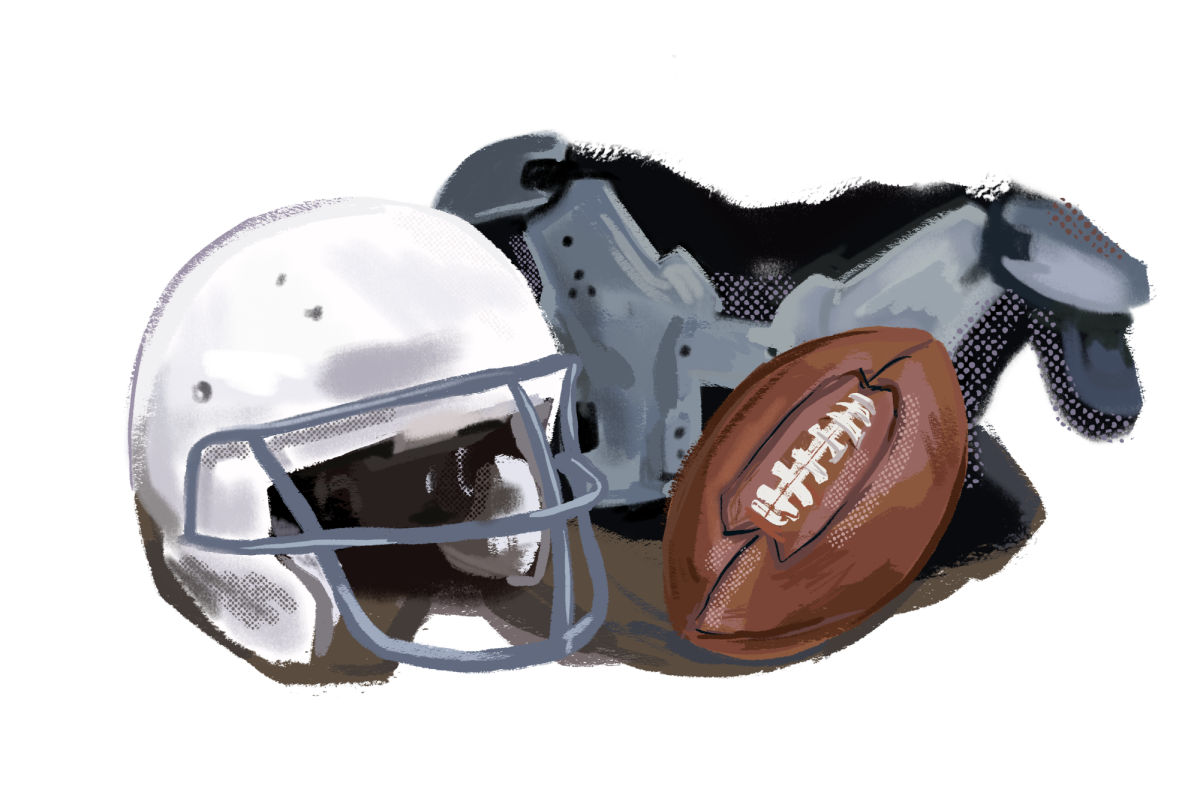Written by Alex Dersh
Mike Webster, center, aged 50. Terry Long, offensive lineman, aged 45. Justin Strzelczyk, offensive tackle, aged 36. Andre Waters, safety, aged 44. All four of these men were celebrated NFL football players on the Pittsburgh Steelers; all four of their lives spiraled out of control, ending in their deaths. The cause: brain damage suffered from playing football, due to thousands of hits to their heads sustained over their long careers.
I recently watched the movie “Concussion,” which chronicled these deaths through the lens of the doctor who examined them after they died. Combined with my own research into the subject, this film alerted me to the real dangers of playing the sport. It hits home for me too, because for all intents and purposes I come from a football family. My father and cousin both played as linebackers in high school, and up until they graduated my grandmother would make a point of seeing her son and grandson play as often as she could. Watching the big game every year and sharing Fantasy Football scores are some of my family’s biggest pastimes, and you can be sure that FOX or CBS will be playing on our TV in the background every Sunday.
While I stay informed about the NFL, I don’t subscribe to it the way my father does, and it would be a stretch to call me a fan. The biggest reason I’m not a fan is my cynicism about the sport and the detrimental effect it has on players.
As the film highlighted, playing football comes with an inherent risk of long-term brain damage due to chronic traumatic encephalopathy (CTE). This disease causes the brain to deteriorate, leading sufferers to develop symptoms such as impulsivity, depression, confusion, memory loss and advanced dementia. Not all football players get it, and just because the disease is inherent doesn’t mean someone like my dad is guaranteed to have CTE. Surely enough, he functions (reasonably) well at 51 years old. But the statistics regarding the disease deserve a double-take: a September 2015 study found that 96 percent of NFL players examined posthumously by researchers had CTE. The same was true for 79 percent of all players NFL or otherwise.
Now, my father isn’t nai?ve about the dangers of football. Knowing what he knows now, about concussions, about CTE, he would not let me play football today. Upon being asked whether he would have played football all those years ago had he known what he knows now, he can’t say for sure. He knew the risks of football, like concussions, injuries and broken bones. All kids back then did. But what they didn’t know was the risk of chronic brain disease, of having a life ruined because of an inherently violent American pastime.
It’s ironic, but not lonely, for my father to be a committed NFL fan who nevertheless abhors the damage it can cause. Hearing news like the early retirement of Chris Borland or the regret of Antwaan Randle El reminds me that even the players, never mind the country, struggle between reverence for these modern gladiators battling in a Colosseum and recognition that humans were not created to play nor evolved to endure this sport.











